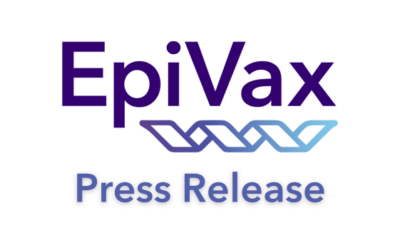Experts in T cell biology, EpiVax scientists have been developing novel T cell epitope vaccines since the company was founded in 1998. This vaccine is named VennVax because it was developed by defining conserved elements between vaccinia (the cowpox virus) and smallpox (the disease that vaccinia vaccine protects against). These conserved elements (T cell epitopes) are also conserved in monkeypox. Initial studies in HLA transgenic mice demonstrated 100% survival rates.
EpiVax has also marked progress this year on a new vaccine for avian influenza that incorporates an immune-engineered H7N9 Hemagglutinin (HA) vaccine antigen, which increased the immunogenicity and efficacy in mouse models. Publication forthcoming in an upcoming 2022 issue of Human Vaccines & Immunotherapeutics. This follows promising results for a Q Fever T cell vaccine candidate published in Frontiers in Immunology in May 2022, in collaboration with Massachusetts General Hospital Scientists.
Dr. Lenny Moise, Director of Vaccine Research at EpiVax had this to say on the potential of T cell vaccine technology: “We are optimistic about the future for vaccines designed to exploit T cell immunity. Our T cell-directed smallpox vaccine shows it’s possible to fully protect against disease without inducing an antibody response. And when antibodies are needed, whole antigens can be sculpted to trigger stronger T cell responses for increased vaccine efficacy.”
About EpiVax:
EpiVax is a biotechnology company with expertise in T cell epitope prediction, immune modulation, and rapid vaccine design. EpiVax’s screening toolkits for therapeutics and vaccines are employed in advancing the research of a global roster of companies.
For more information, visit www.epivax.com.
Press Contact:
Katie Porter, Business Development Manager
EpiVax
Source: EpiVax, Inc.

